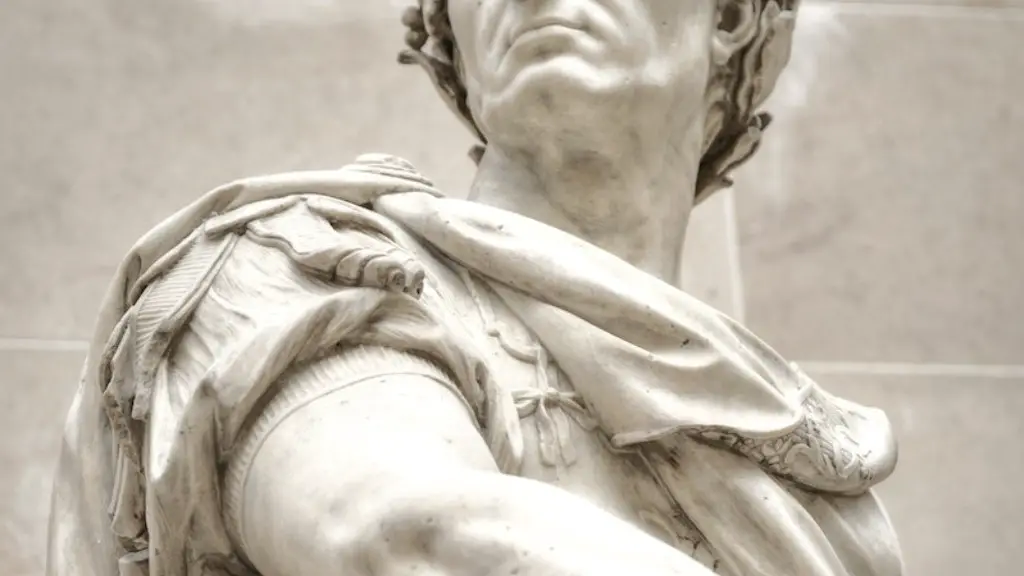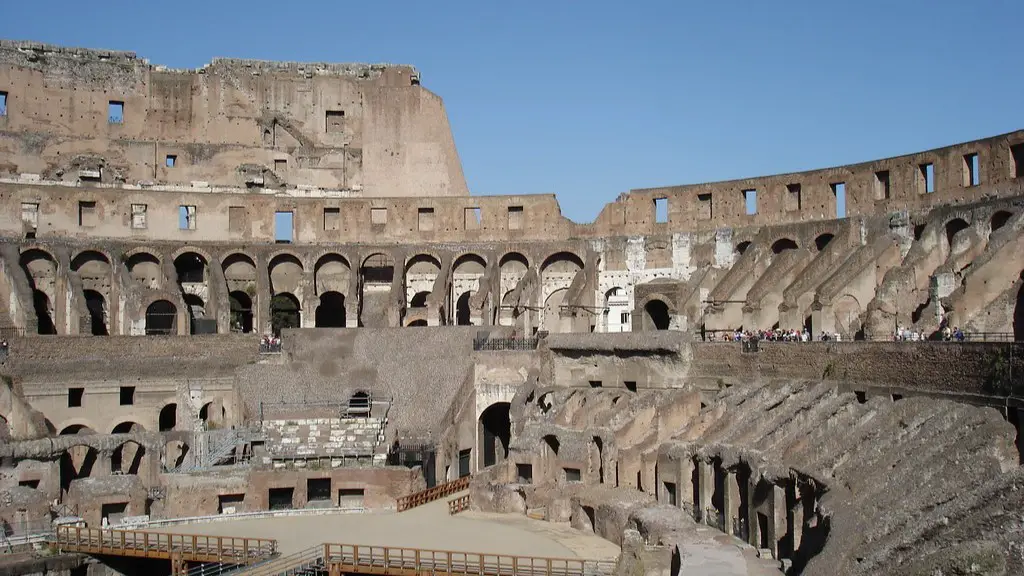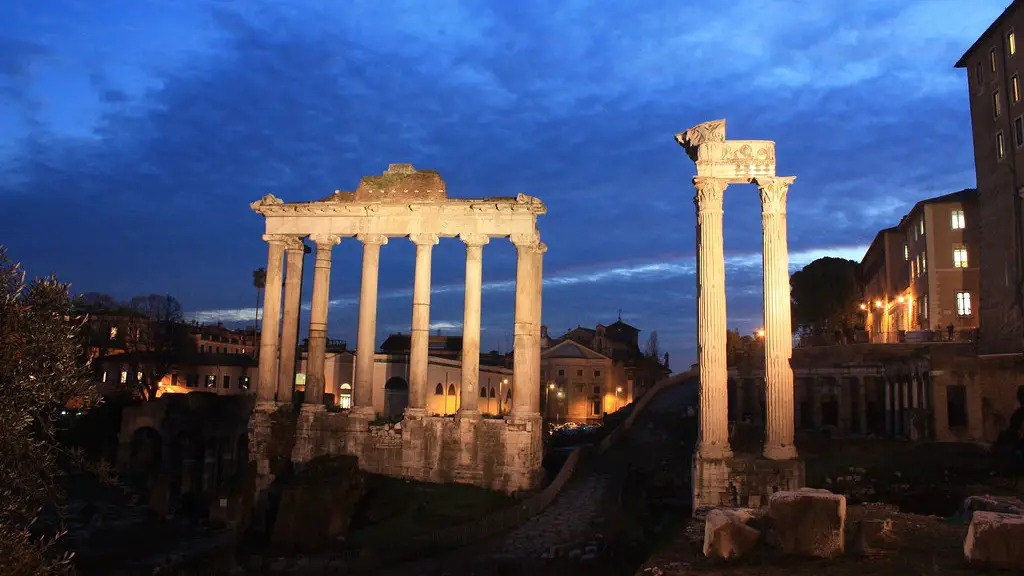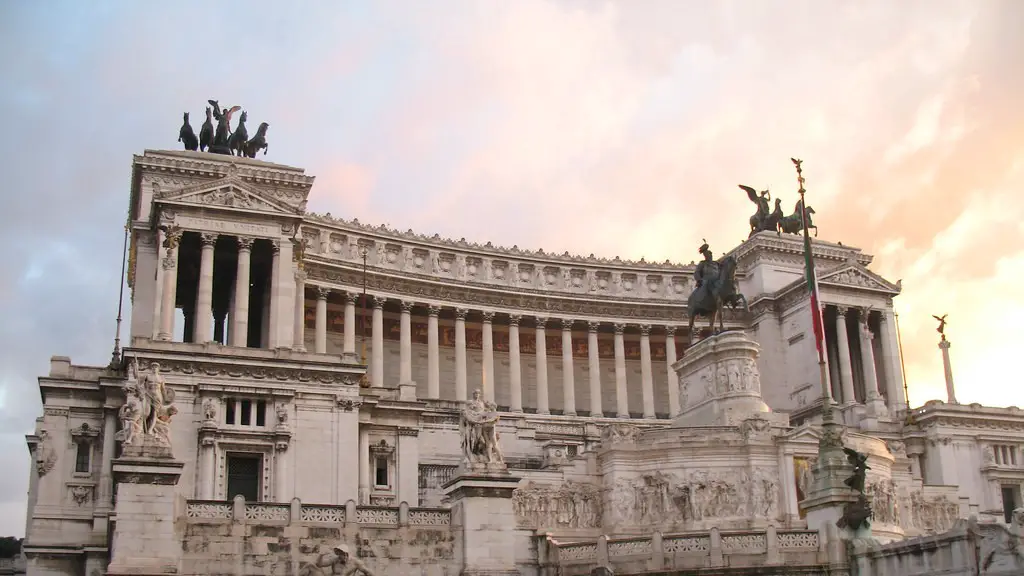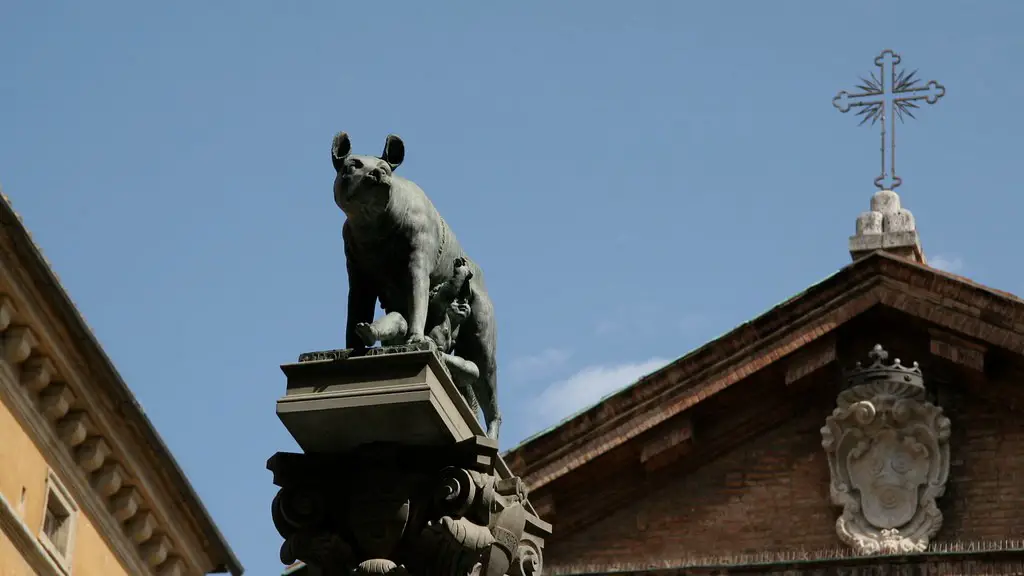During the days of the Roman Republic, a freedman was a slave who was officially liberated by a former master. This was a common occurrence in the ancient world and could involve different levels of freedom. Sometimes the freed slave would still be expected to work for the former master, or to make regular payments. However, in other cases, the slaves would be completely free to pursue their own lives and were no longer subject to their former master’s control. This article will explain what it meant to be a freedman in ancient Rome, discuss the various types of freedmen, and provide insight into the lives of these liberated individuals.
The Master and Slave Relationship
In ancient Rome, slavery was a fundamental part of life and it was considered a normal part of the social order. Slaves had no rights and were subject to the whims of their masters. Although some masters treated their slaves better than others, in general, slaves were expected to be loyal and obedient. The relationship between masters and slaves was not one of equals and slaves had few options to improve their lot in life.
When a slave was freed, the relationship between master and slave changed. In general, freedmen were given more freedom and independence, although this could vary depending on the terms of liberation.
Terms of Liberation
A freedman in Rome could be granted freedom to an extent, but this could take different forms. In some cases, a freedman could be granted full freedom, in which they were no longer bound to their former master in any way. However, in other cases, a freedman may still be expected to provide services or payments to their former master, such as taxation or payment of debts. At the same time, some masters might grant partial freedom, allowing the freedmen a limited amount of rights, such as being able to marry, own property, or engage in commerce.
It was not uncommon for former masters to grant freedom to their slaves as a reward for loyal service. In this case, the freed slave may still be expected to provide services or payments to their former master, but they would still have a degree of independence and freedom. This could also be a way for masters to prove their loyalty and grantees an incentive to remain loyal.
The Lives of Freedmen
Once a slave was officially freed, they were able to pursue their own lives and had access to more opportunities than they had as slaves. Although freedmen had more freedoms, they still faced several obstacles and did not have the same rights as Roman citizens. A freedman was not allowed to hold public office, serve in the military, or vote in elections. Despite these limitations, many freedmen made successful careers for themselves and could gain status and wealth that would have been impossible as slaves.
Freedmen often became tradesmen, merchants, or craftsmen, taking advantage of the economic opportunities available to them. Many were able to rise to prominence through their hard work and regained the loyalty of their former masters. This could prove to be a very lucrative career, as many former masters called upon their former slaves to provide services or goods that they could not get elsewhere. Some freedmen also worked as teachers, tutors, and other knowledgeable jobs, helping to spread knowledge and gain influence in Roman society.
Legacy of the Freedman
The legacy of the freedman in ancient Rome was significant. Freedman helped to bring more rights and freedoms to slaves, even though in some instances, the freedoms still did not extend to the same level as Roman citizens had. Freedman were able to regain some of the autonomy that their former masters had taken away, and in many cases, their former masters became reliant on them for their skills and talents.
Freedman also had a significant impact on Roman culture, introducing new ideas and innovations. For example, freedman often became teachers, tutors, and merchants, introducing new ideas and methods to Roman society. This helped to usher in a new era of knowledge, advancement, and progress in Rome, which could not have been accomplished without the contributions of freedman.
Rising Status of Freedmen
During the late Roman Empire, the status of freedman began to rise. Freedman were given more rights and privileges than previous generations had been able to access. They were able to own land, engage in commerce, and were even able to hold public office in some cases. This was a major step forward for freedman and allowed them to gain status and influence in Roman society.
As freedman began to rise in status, they found more opportunities to leverage their skills and knowledge. Freedman began to fill important positions, such as teachers, tutors, and military officers, that had previously been closed off to them. This provided them with more power and influence and allowed them to shape the future of Roman society.
Legacies in Modern Times
The legacy of the freedman in ancient Rome is still seen today. Freedman helped to pave the way for the emancipation of slaves and the granting of equal rights and privileges to all citizens. Additionally, their contributions to society in terms of knowledge and innovation continue to be felt today. They helped to shape Roman society, introduce new ideas and methods, and create a more equitable and progressive world.
Challenges Faced by the Freedman
Despite their successes and achievements, freedman still faced numerous challenges and hardships during Roman times. They still did not have the same rights and privileges as Roman citizens and were often limited in the economic and social opportunities available to them. Additionally, freedman were often still subject to their former master’s influence, meaning they were still vulnerable to exploitation and manipulation.
Nevertheless, freedman still managed to make significant strides in advancing the rights and freedoms of slaves. Their legacy continues to be felt today and their contributions to Roman society remain a testament to the power of human resilience and resourcefulness.
Contributions of the Freedman to Education
The contributions of the freedman to education in ancient Rome were significant. Freedman often helped to spread knowledge and bring new ideas to Roman society as teachers and tutors. Freedman also had a significant impact on the spread of literacy, which was essential to Roman society. By teaching the general population how to read and write, freedman were able to help shape Roman society and spread knowledge and culture.
Additionally, freedman played an important role in the spread of Christianity by teaching the faith to those who were once slaves. This had a profound impact on Roman society and helped to usher in a new era of faith and progress. It is clear that through their contributions to education, freedman had a significant impact on the evolution of Roman society.
Conclusion to The Freedman Experience
In ancient Rome, being a freedman was a unique experience that many slaves were afforded. For some, it was a blessing, as they were granted more freedoms and opportunities than as a slave. For others, it was a struggle, as they were still subject to the control of their former masters. However, all freedman had a significant impact on Roman society, introducing new ideas and innovations while also paving the way for a more equitable and progressive world.
